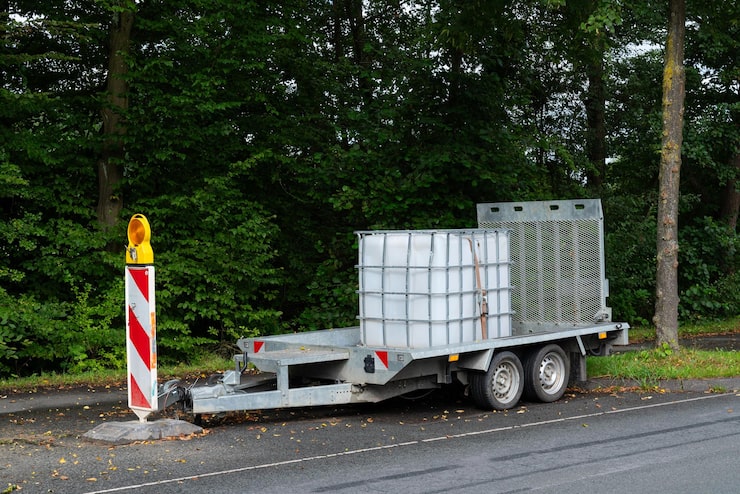Warehouses and distribution yards have changed rapidly over the past few years, with the expansion of e-commerce and an increasing necessity for faster product delivery. This promotes the adoption of efficient and fast yard activities, resulting in the yard as a focal point in the supply chain that is fast, accurate, and visible.
Moreover, automation and technology will become integral to the business to meet these needs. One of these technologies will be the use of AI in yard management. AI-powered warehouse management systems have increased operational efficiency by 65% in the past year alone. AI helps yard managers control vehicle flow, reduce turnaround times, schedule docks more effectively, and minimize errors, resulting in faster, leaner, and more cost-effective operations.
In case you are interested in learning how AI can transform your yard operations, read on. This post discusses 5 must-know facts about AI in yard management that will keep you ahead.
What Is AI In Yard Management?
AI in yard management utilizes artificial intelligence to automate and optimize key yard activities, including trailer tracking, dock scheduling, gate operations, and yard truck dispatching. These AI systems integrate machine learning, computer vision, and real-time data from sensors and IoT devices to enhance visibility, minimize delays, and improve accuracy in yard operations.
According to the 2024 MHI annual industry report, organizations that have implemented AI-powered yard management solutions report a reduction of up to 30% in yard delays. These technologies allow yard managers to make smarter, faster decisions—such as predicting trailer arrival times, assigning docks based on load type, and automating gate check-ins—ultimately leading to leaner operations and fewer costly delays.
8 Must-Know Facts About AI In Yard Management
1. AI Reduces Trailer Dwell Time By Up To 40%
The advantage of AIs in managing the yard is that they decrease the time trailers spend en route to the dock. Dwell time refers to the amount of time that trailers are sitting idle at the yard, which can become a potential factor in delays and subsequent expenses.
By utilizing real-time tracking and smart scheduling, AI enables the prioritization of trailer movements, efficient assignment of dock doors, and timely alerts to managers about potential delays. According to a PwC report, AI solutions have helped reduce dwell times by up to 40%, especially in high-volume distribution centers.
2. Smart Dock Scheduling Improves Turnaround Times
AI systems in yards are connected with dock scheduling tools that analyze trailer arrival times, dock availability, and shipment priority. This ensures each trailer is assigned to the right dock without manual planning. For companies relying on AI in yard management and transportation, this significantly cuts waiting times by 25–35% and improves service-level agreements (SLAs).
3. AI Enables Real-Time Yard Visibility
Using AI in yard management, companies gain live visibility into trailer location, container status, gate activities, and more. By integrating GPS, RFID, and computer vision, managers can view all information from a centralized dashboard, eliminating the need for clipboards or radio communication.
4. Predictive Analytics Help Avoid Bottlenecks
AI doesn’t just report what’s happening now—it predicts what’s likely to happen next. With machine learning models trained on historical yard data, AI can forecast peak traffic times, equipment needs, and possible blockages. This predictive capability is critical for managing complex yard and transportation operations. AI can improve throughput in yards by 15–25%, depending on volume and yard layout.
5. AI Automates Gate-In And Gate-Out Operations
Manual gate operations are time-consuming and prone to bottlenecks. AI-powered gate systems use technologies like license plate recognition (LPR) and RFID scanning to speed up check-ins and check-outs. This improves efficiency and enhances security by ensuring all movements are logged and verified. Forrester Research reports that AI-driven gate automation reduces the average check-in time per trailer by up to 70% and helps logistics yards process more vehicles per shift.
Challenges In Implementing AI In Yard Management
While the benefits of AI in yard management are clear, implementation can present several challenges, especially for companies without a strong digital foundation or a logistics technology partner. Below are some of the common hurdles businesses face when adopting AI in their yard management services:
1. High Setup And Integration Costs
Getting started with AI often involves costs for sensors, software, and system integration. These expenses can be exceptionally high for companies operating with outdated infrastructure.
Solution: Start small by using modular AI tools that can integrate with your existing systems over time. Cloud-based platforms help reduce upfront investment.
2. Data Quality And Incomplete Yard Visibility
AI needs accurate and consistent data to make smart decisions. But many yards still rely on manual tracking or outdated spreadsheets, which limit visibility.
Solution: Focus on improving data capture methods first—such as installing basic IoT devices or using mobile check-in apps—to establish a clean data flow for AI to work with.
3. Resistance From Yard Staff
Some teams may be hesitant about switching to AI tools, especially if they’ve been using manual systems for years. Fear of change or job loss can slow down adoption.
Solution: Train staff early and show how AI helps with routine tasks, rather than replacing roles. User-friendly tools with simple dashboards help increase confidence.
4. Lack of System Connectivity
AI works best when it connects your yard with transportation and warehouse systems. If your systems don’t talk to each other, the benefits of AI are limited.
Solution: Choose solutions that integrate smoothly with TMS and WMS platforms. This enables a more connected workflow across your supply chain.
5. No In-House AI Expertise
Many companies lack artificial intelligence experts on staff, which can make managing these systems challenging in the long term.
Solution: Hire a reputable company like Zelo Express that provides yard management services that are easy to adopt and manage. Their expert team handles the technical side—from setup to optimization—so your team can focus on operations without needing in-house AI skills.
Wrapping Up
The future of yard operations is smart, connected, and data-driven—and AI in yard management is leading the way. By minimizing the amount of time trailers spend at rest and maximizing safety, AI enables logistics teams to make real-time decisions, serving as a powerful tool for addressing long-standing issues in a more efficient and precise manner.
There are always challenges on the path to AI adoption, including data quality, system integration, and staff preparedness. These are not impossible to overcome, especially when working with the right tools and support. Ready to make your yard operations more innovative and more efficient? Contact us to learn how AI can be implemented in your logistics operations—with minimal disruption and maximum results.




